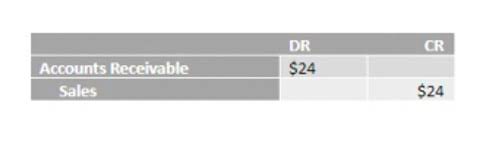
TIR 02-21: Capital Gains and Losses: Massachusetts Tax Law Changes

Your basis in your home is what you paid for it, plus closing costs and non-decorative investments you made in the property, like a new roof. You can also add sales expenses like real estate agent fees to your basis. Subtract that from the sale price and you get the capital gains. When you sell your primary residence, $250,000 of capital gains (or $500,000 for a couple) are exempted from capital gains taxation. This is generally true only if you have owned and used your home as your main residence for at least two out of the five years prior to the sale. Tax-loss harvesting is a strategy that allows investors to avoid paying capital gains taxes.
Vermont and Maine apply a graduated system concerning rates; however, this application allows the taxes to rapidly exceed the 8 percent rate of Massachusetts. People aged 66 or older can deduct their prepaid funeral insurance costs or medical and dental insurance premiums for themself or their dependents. They must have an earned income of at least $20,000 for the year and a federal adjusted income $30,000 or less.
Personal Income Tax for Residents
Let’s look at how federal and state governments tax capital gains. The state of Virginia offers a standard and itemized deduction for taxpayers. The 2021 standard deduction allows taxpayers to reduce their taxable income by $4,500 for single filers and $9,000 for married filing jointly filers. If you claim the standard deduction on your federal tax return you must also claim it on your Virginia return. Why the difference between the regular income tax and the tax on long-term capital gains at the federal level? It comes down to the difference between earned and unearned income.
In the eyes of the IRS, these two forms of income are different and deserve different tax treatment. The short-term capital loss completely offsets the long-term capital gain, resulting in a net short-term capital loss of $10,000. A short-term capital loss deduction of $2,000 is applied against the $10,000 dividend income, resulting in $8,000 dividend income to be taxed at the rate of 5.3%. The unused short-term capital loss of $8,000 is carried forward to 2003.
Effective for Tax Year 2025
The long-term capital gains rate remains unchanged at 5 percent. In tax year 2001, a taxpayer realized a long-term capital gain upon the sale of a capital asset that had been held for more than four years but not more than five years (2% tax rate). The sale was an installment sale and payments are to be made in monthly installments over a five-year period. The taxpayer timely elected installment treatment to report the gain for Massachusetts income tax purposes.
- Net capital gains are taxed at different rates depending on overall taxable income, although some or all net capital gain may be taxed at 0%.
- Refer to IRS Publication 505, Tax Withholding and Estimated Tax, for additional information.
- The alternative minimum amount is paid if it is greater than the amount applied under the standard system.
- Complete Schedule D-IS, Installment Sales, if you are reporting any capital gains on installment sales occurring between January 1, 1996 through December 31, 2002 or qualified small business stock gains.
- In this article, we’ll explain what capital gains are, how they are taxed in Massachusetts.
- More than $34,000, up to 85 percent of your benefits may be taxable.
That’s why some high net worth Americans don’t pay as much in taxes as you might expect. If the transaction is completed on or after May 1, 2002, and before January 1, 2003, massachusetts income tax the amount of capital gain is taxed at the rate of 5.3%. Long-term capital gains can apply a deduction of 30% (or 60% for capital gains from the sale of farm assets).
Married Couples May Get a Break
An overpayment may also be offset or intercepted by the Department of Revenue and applied to another liability. This might involve making investments that offer tax benefits, choosing the right type of retirement account, taking advantage of generally available deductions and credits, or creating a tax-advantaged trust or other vehicle. In addition to corporate and personal taxes, some states apply a franchise or privilege tax to certain businesses for the right to do business in that state. Corporate rates usually vary between 4 and 9 percent and are usually flat, while personal rates change with income and can vary between 0 and 9 percent or more.
Net capital gain from selling collectibles (such as coins or art) is taxed at a maximum 28% rate. The question of how to tax unearned income has become a political issue. Some say it should be taxed at a rate higher than the earned income tax rate, because it is https://www.bookstime.com/ money that people make without working, not from the sweat of their brow. Others think the rate should be even lower than it is, so as to encourage the investment that helps drive the economy. Unearned income comes from interest, dividends and capital gains.
